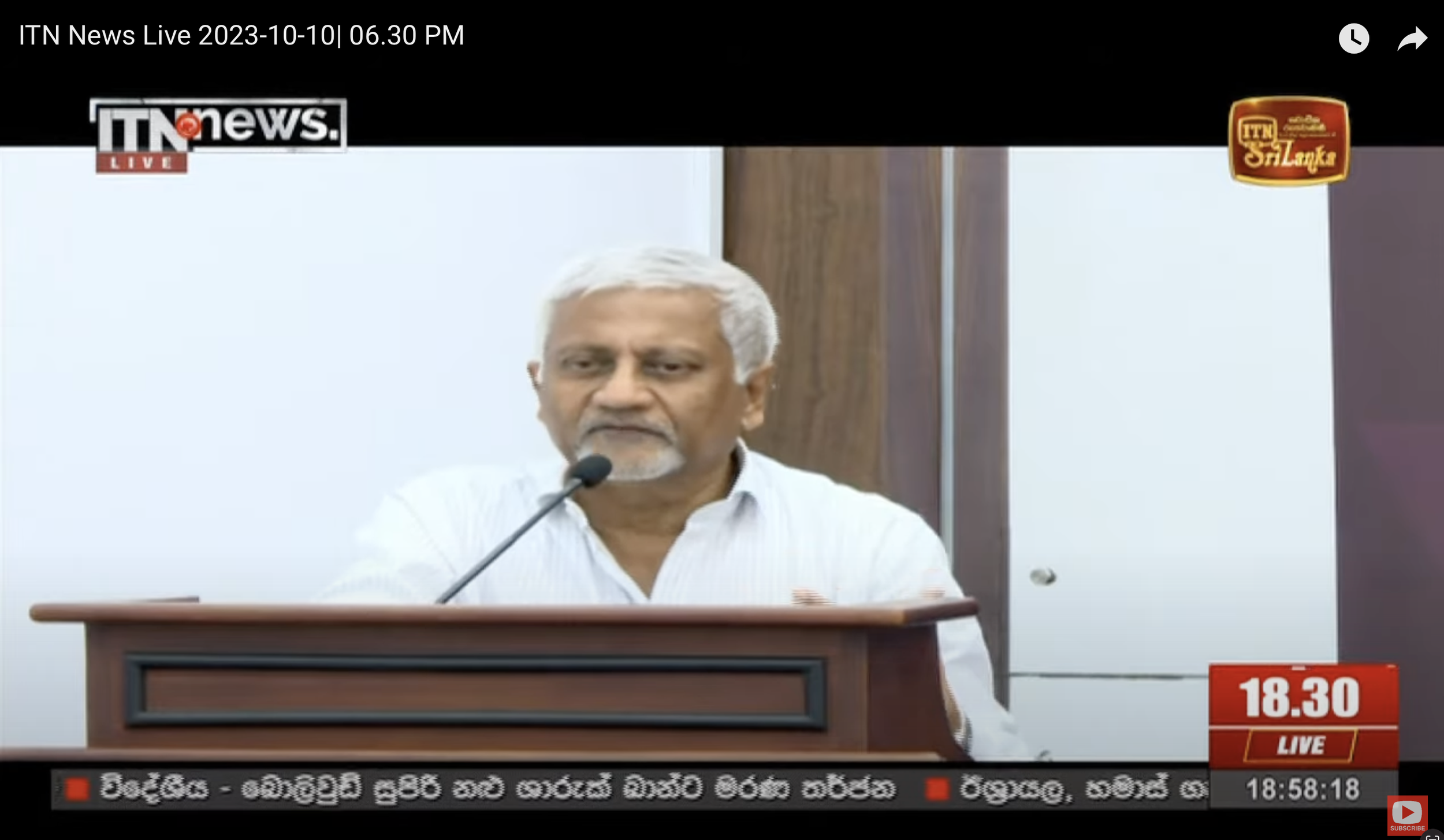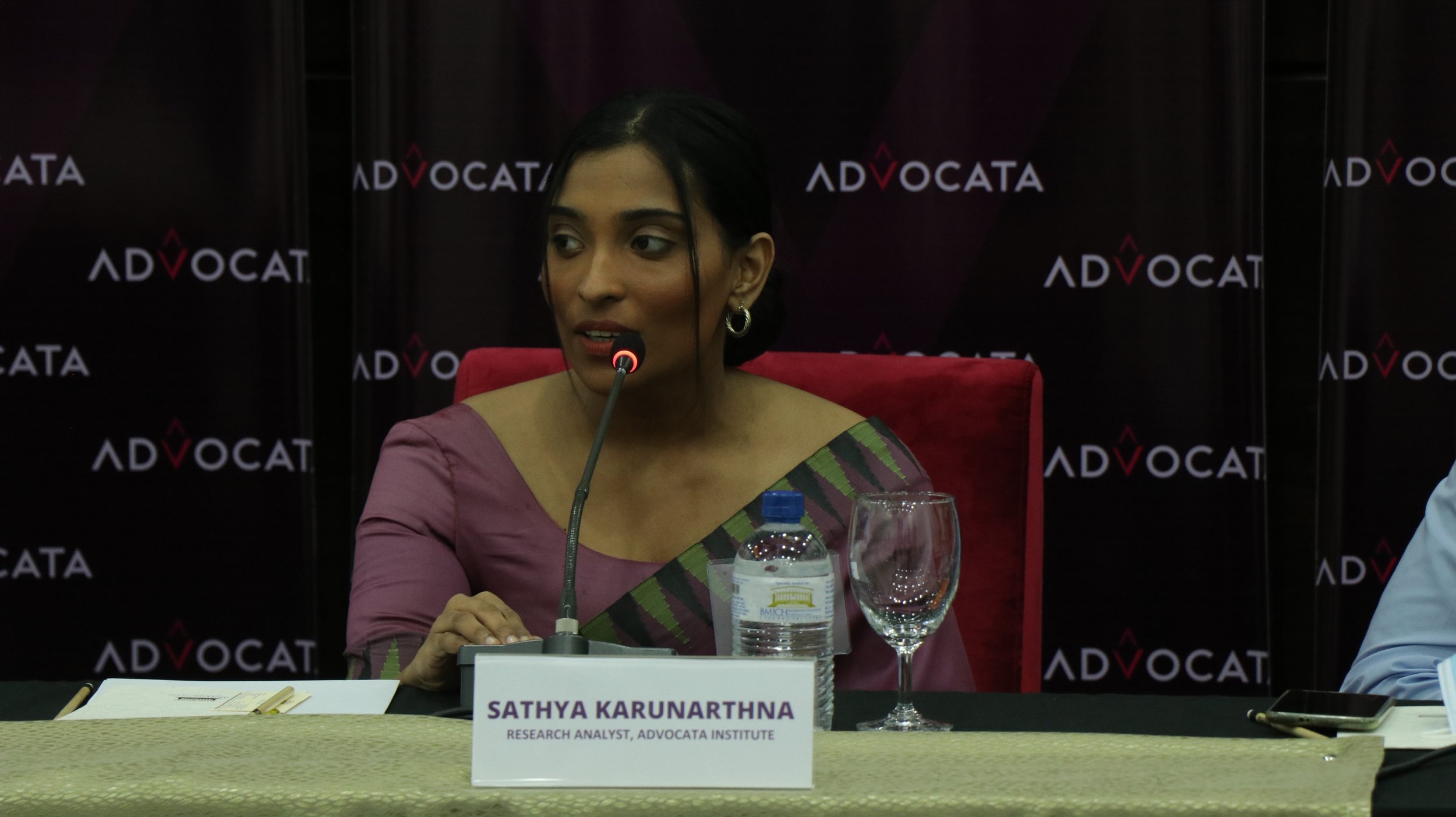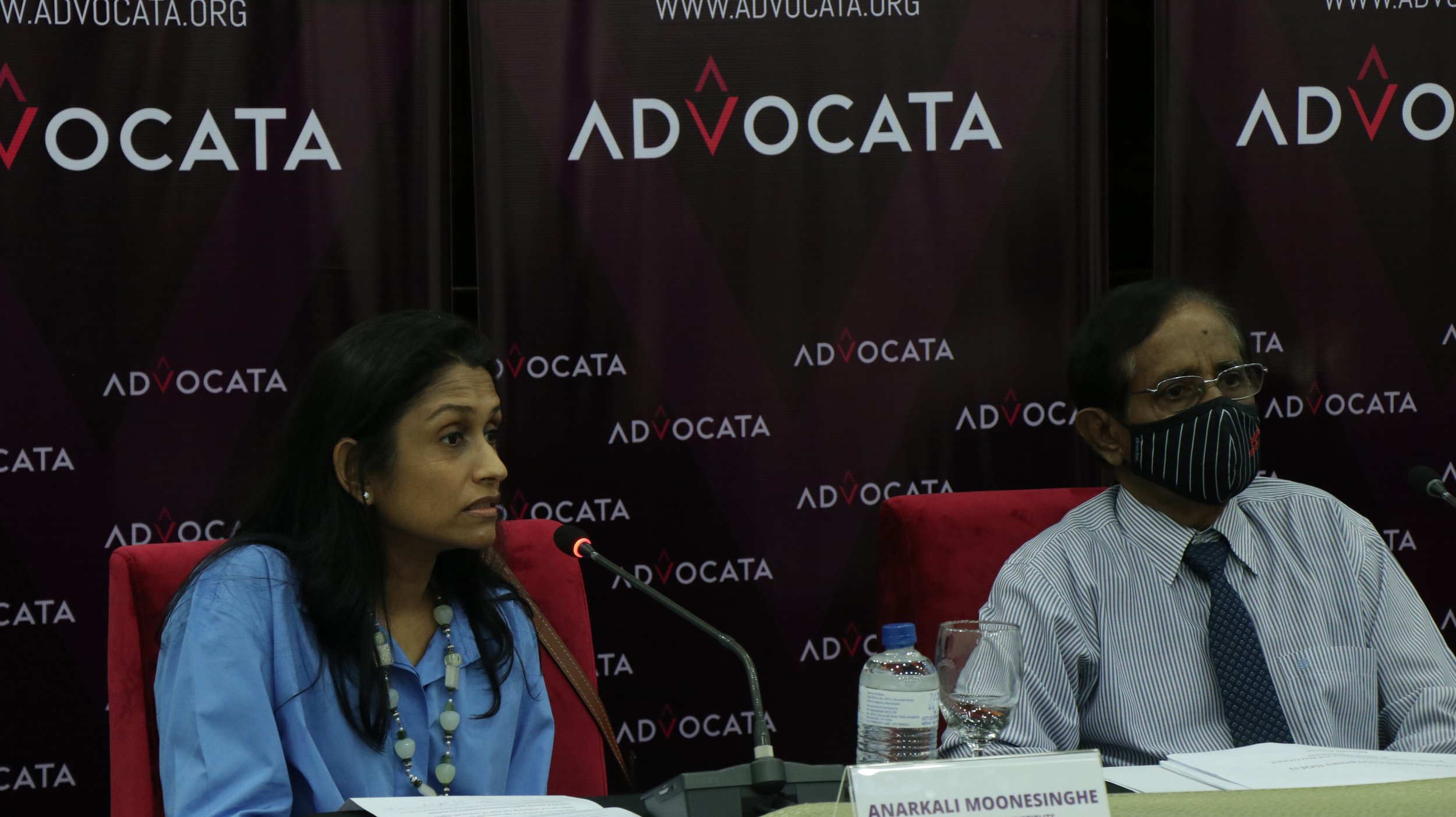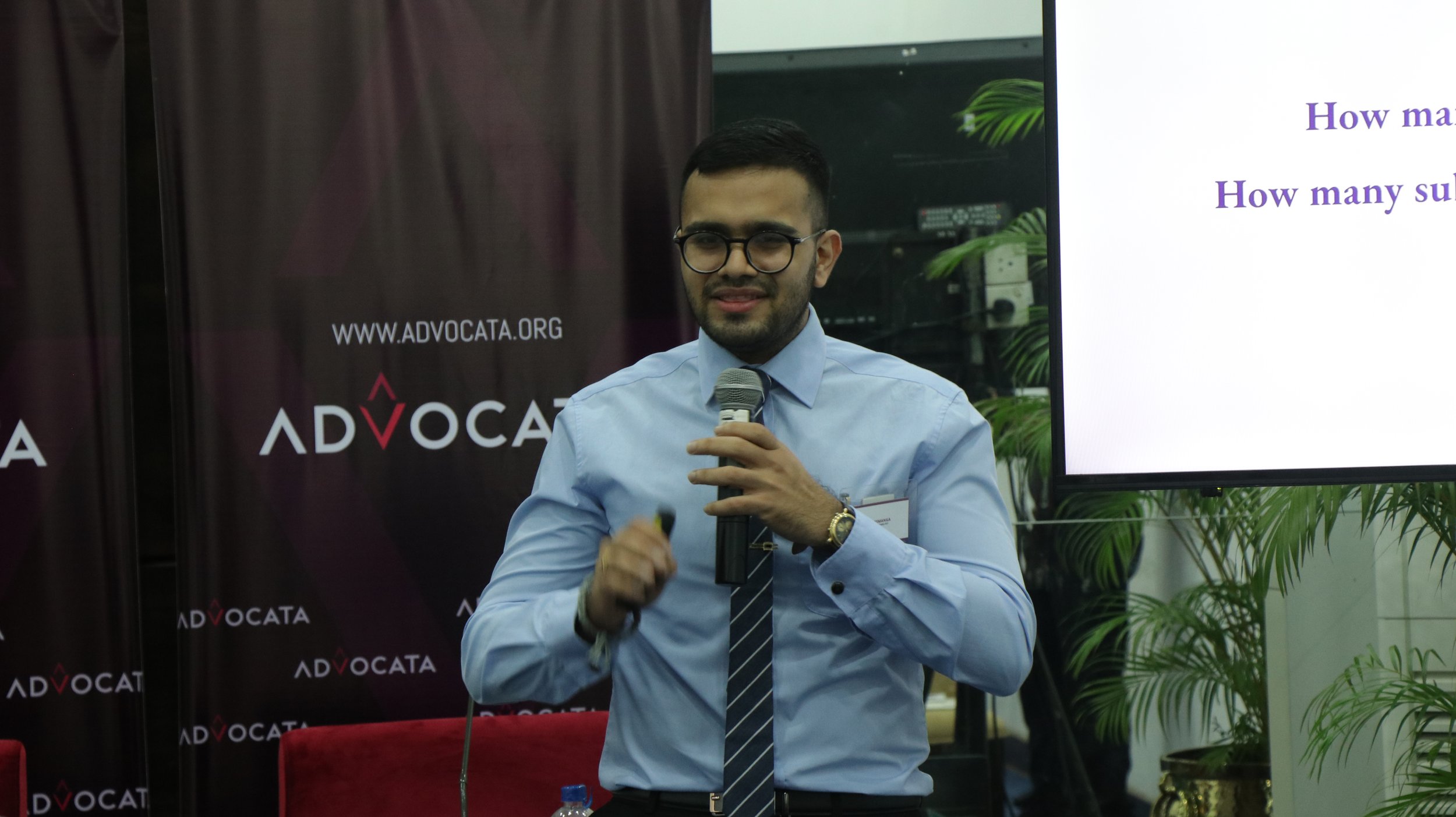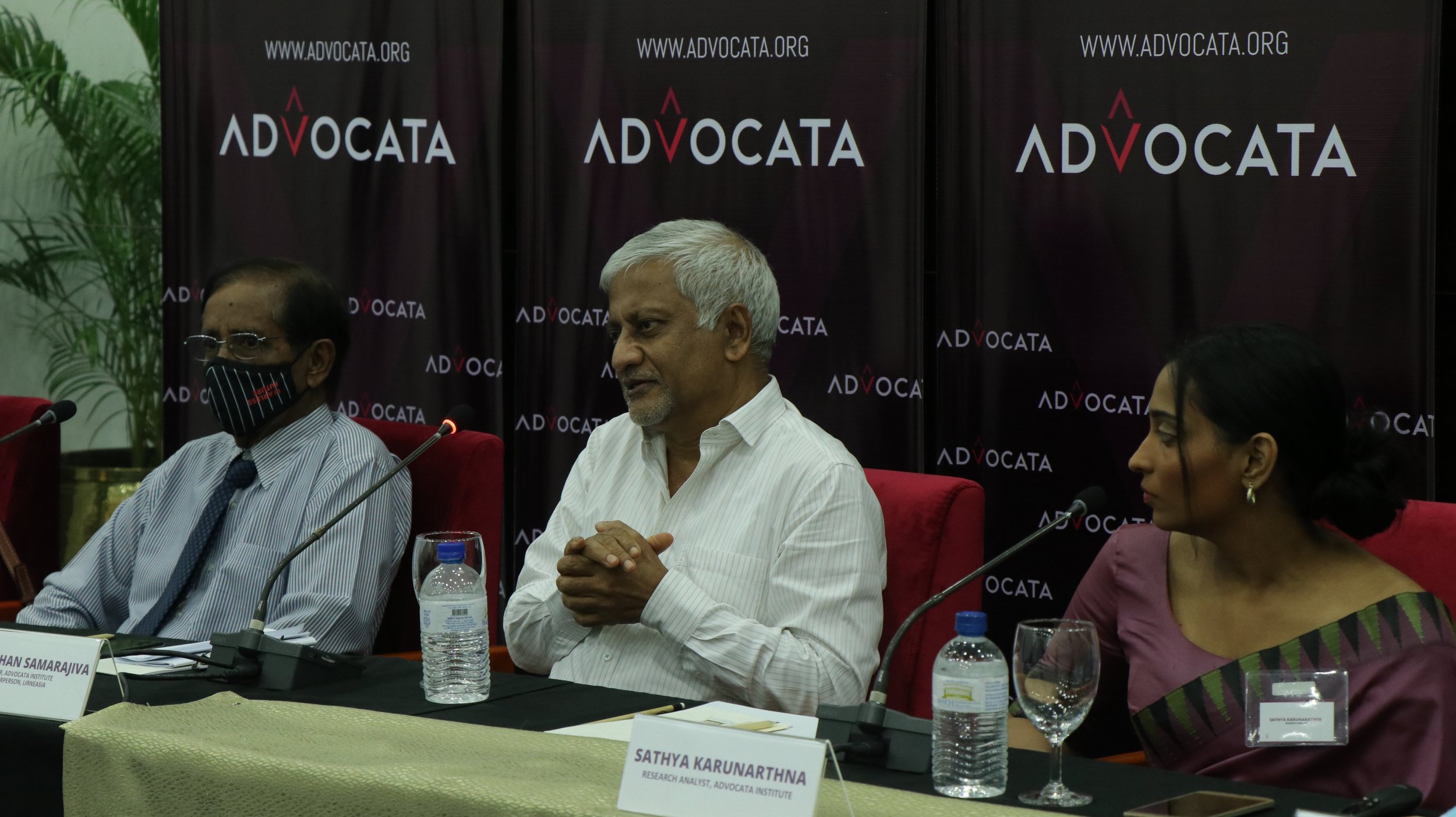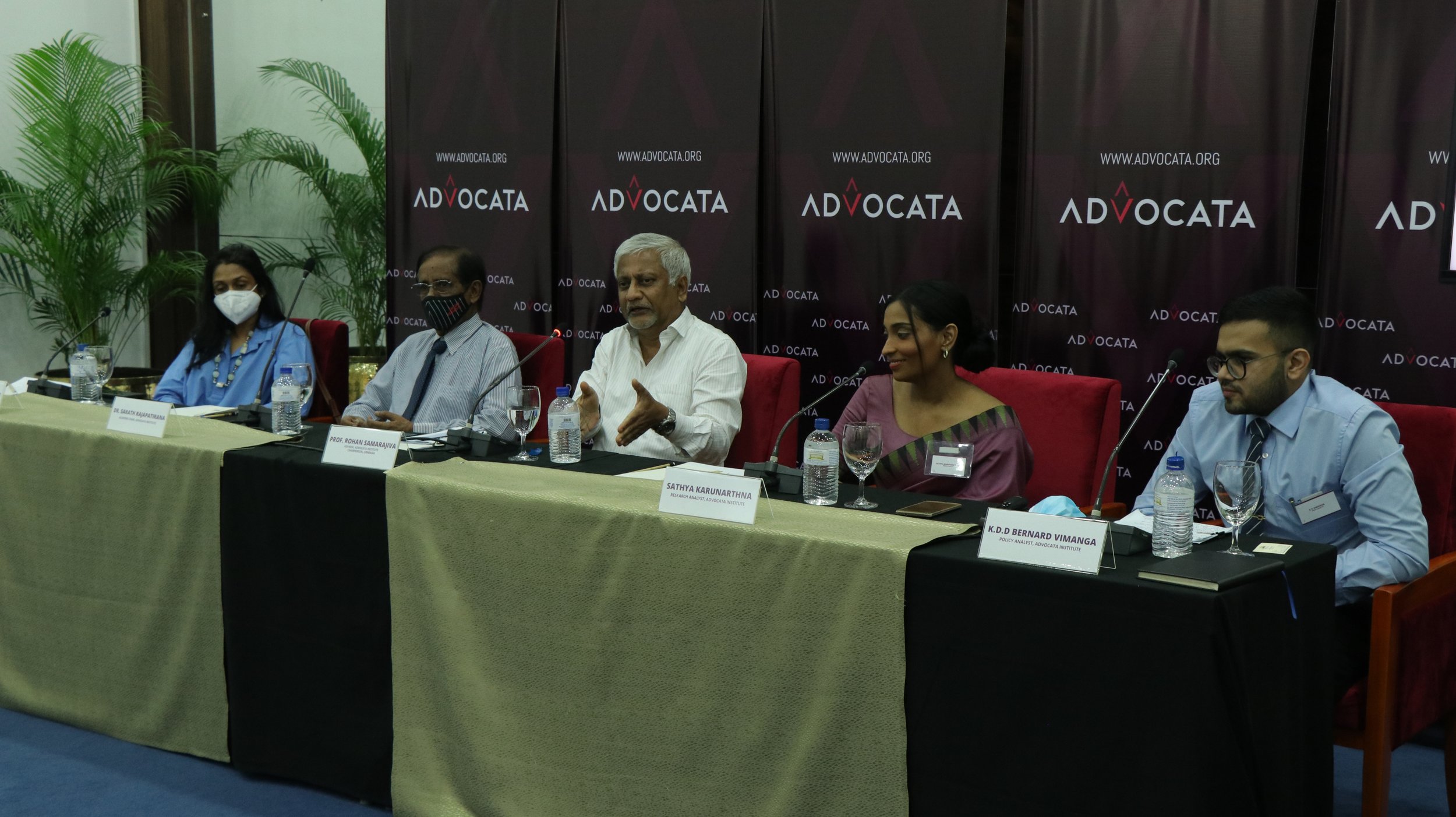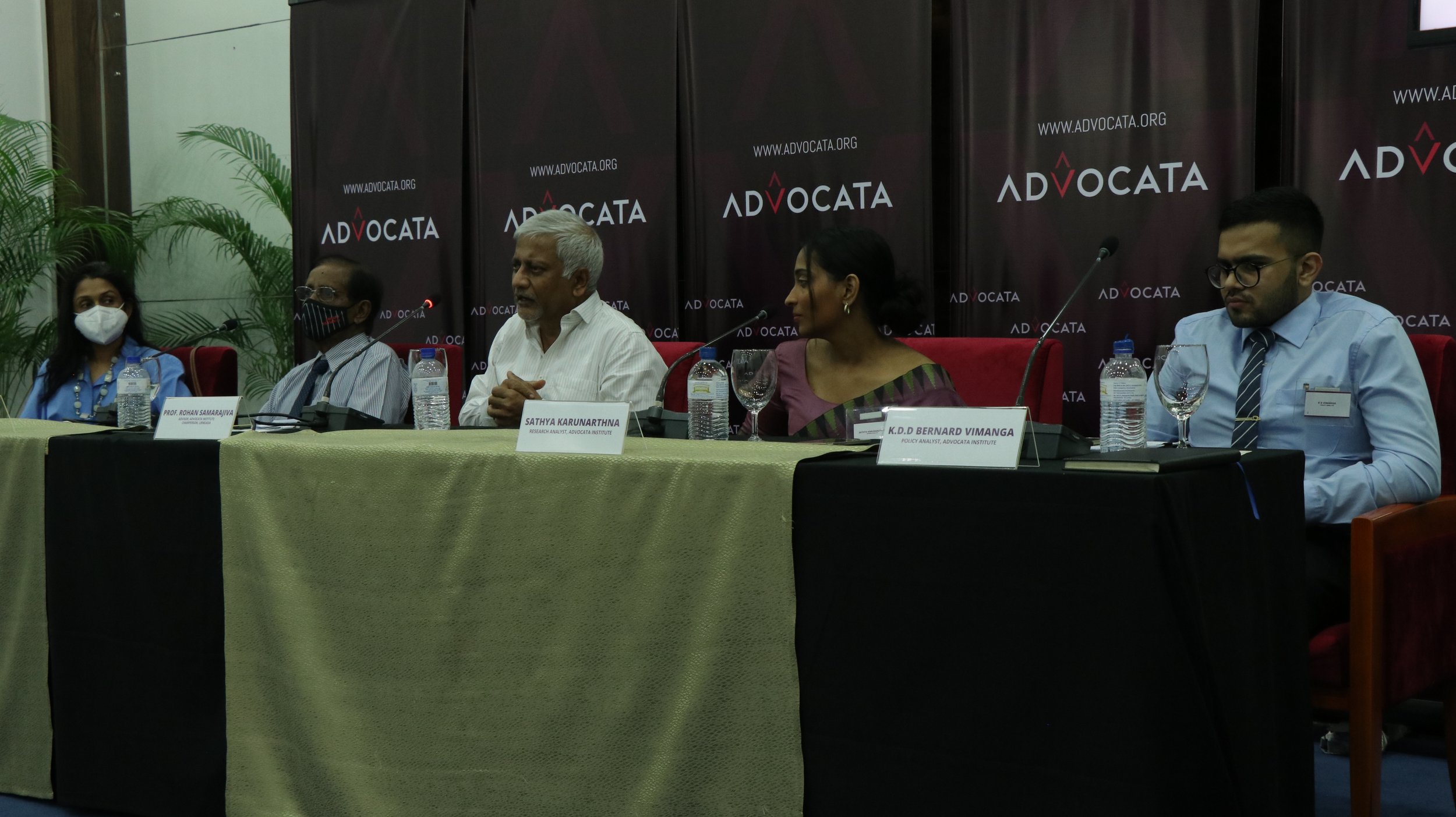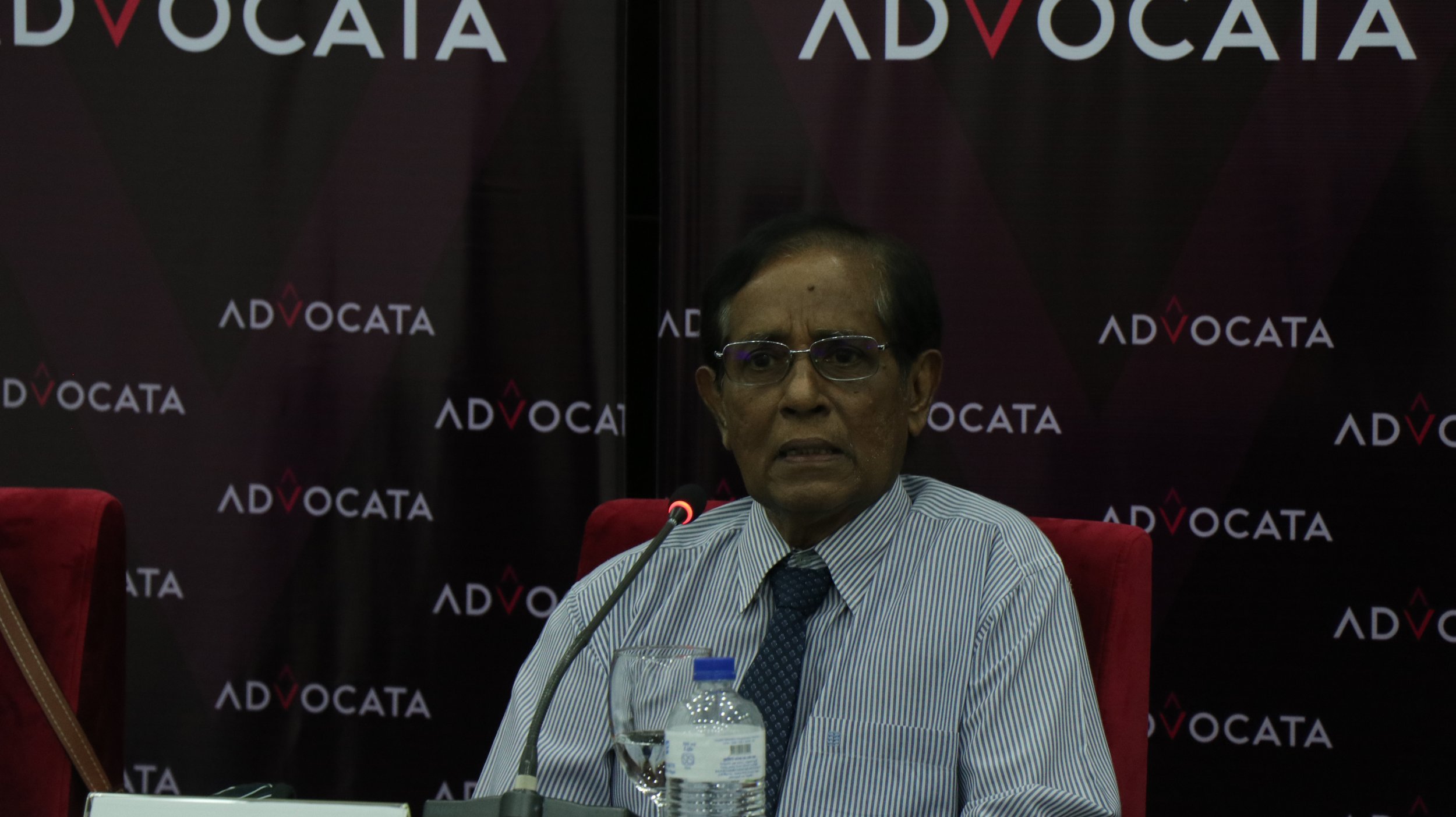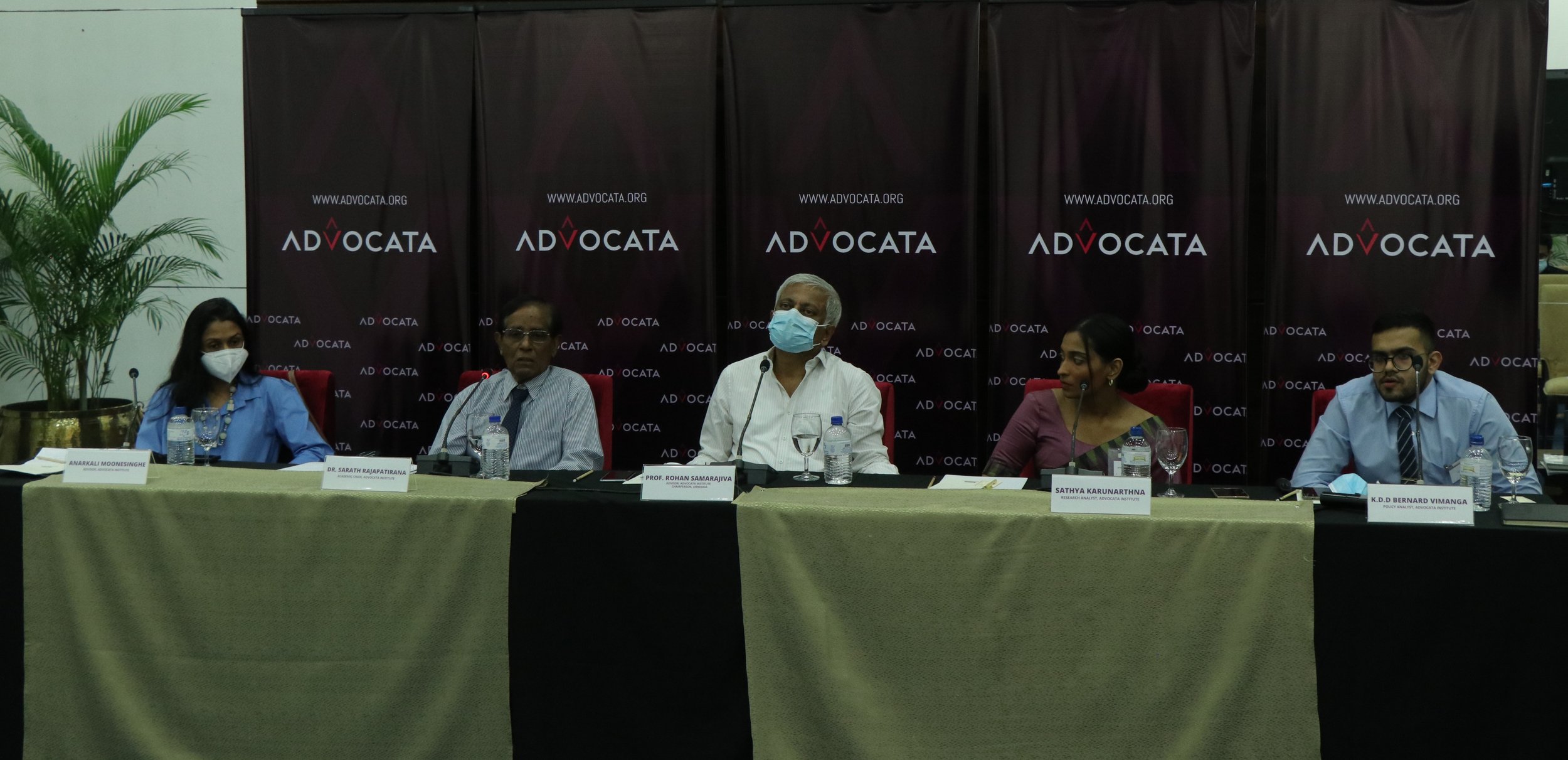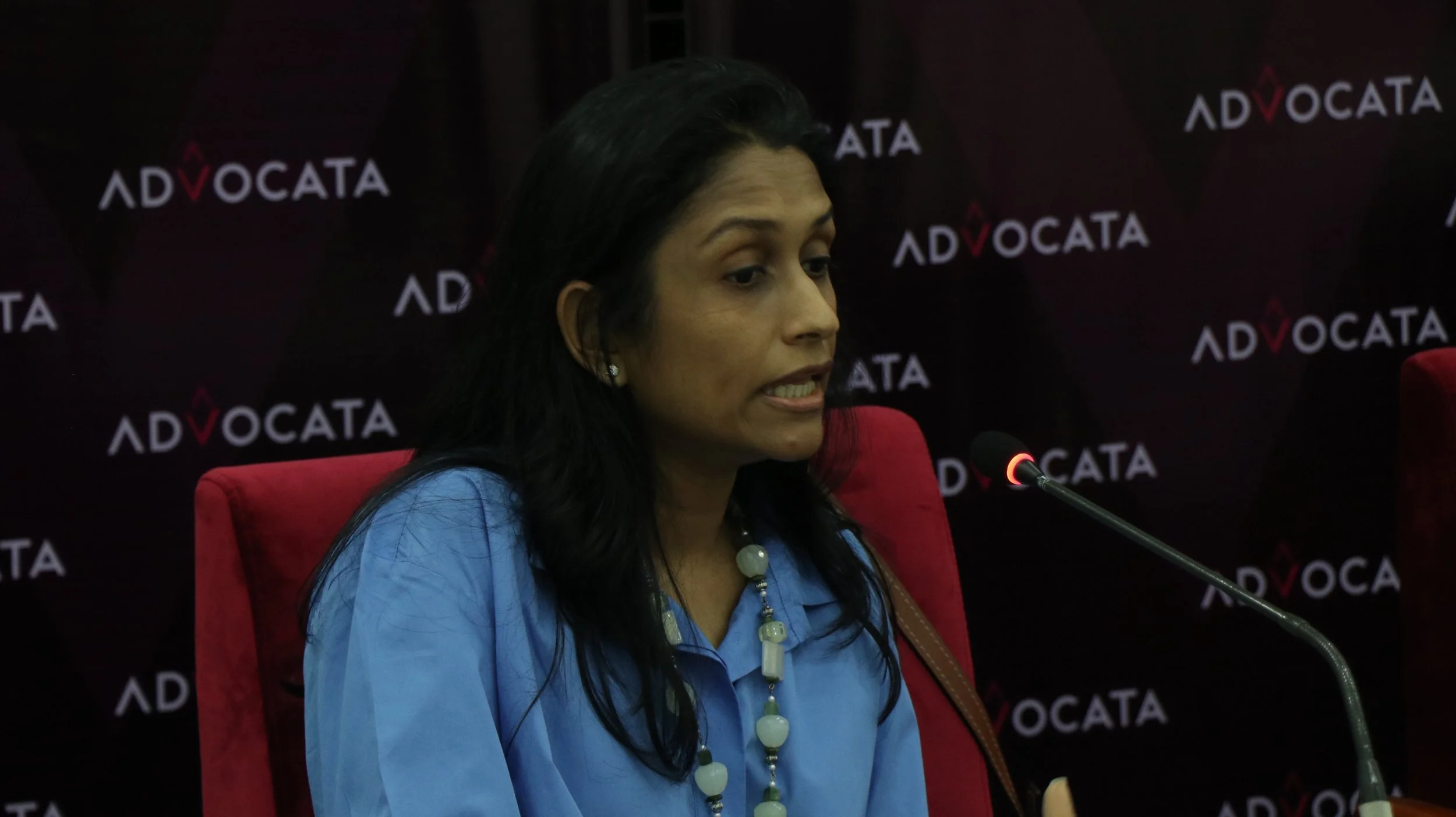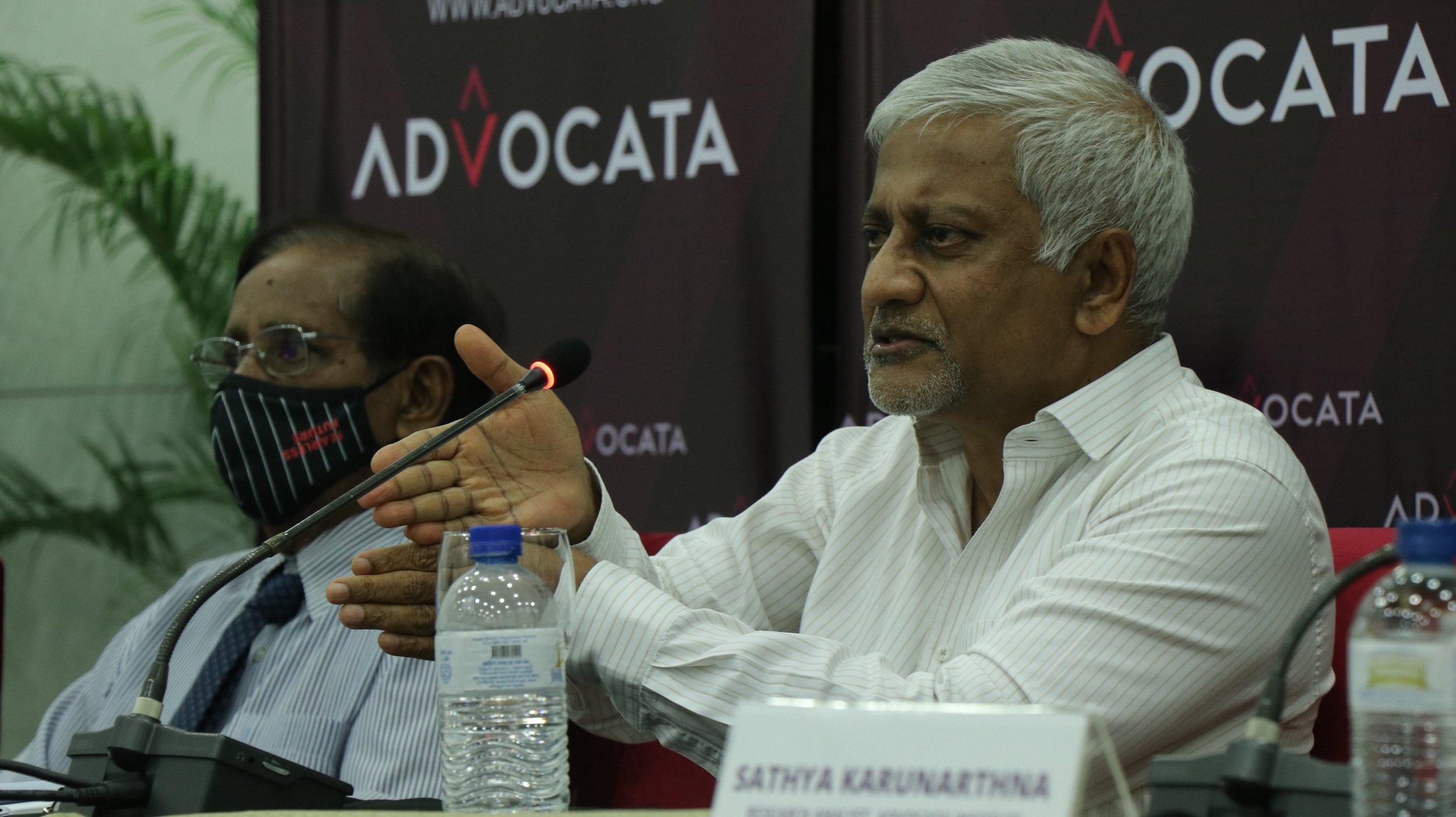Sri Lanka SOE accumulated losses equal 18 times PAYE taxes: Advocata
Sri Lanka’s state owned enterprises ratcheted up losses amounting to 18 times the annual pay as you earn taxes collected from wage earners, since privatisation was halted, a think tank has said.
When state enterprises ran losses they were covered by loans taken from domestic banks as well as from capital markets.
“From 2005 to 2021, roughtly over 15 years, state enterprises have accumulated losses of 1.8 trillion rupees,” said Dhananath Fernando, Chief Executive of Advocata Institute told reporters in Colombo.
Read the full article here
ITN News Live IMF & The Urgency for State-Owned Enterprise Reforms
The video can be found here from the ITN Live News segment (2023-10-10| 06.30 PM)
Sri Lanka should speed up SOE sales before momentum dies: think tank
Sri Lanka should speed up the divestment of state enterprises to reduce the burden on the people, before the momentum for reform out, Advocata Institute, a Colombo-based think tank said.
Key reforms have to be done in the first year of government, Rohan Samarajiva, an Advisor to Advocata Institute told reporters.
“2024 by all estimates will be an election year,” Samarajiva, who had been involved in government reforms earlier said.
“I would generally argue that is not the opportune time for this kind of reforms.”
Failed SOEs account to Rs. 1.5 Tn accumulated losses
Debt owed by public corporations up to 2021 amounts to Rs 1.8 Tn:
The failures of State Owned Enterprises (SOE) are creating a huge financial burden to the country; their losses have resulted in a staggering Rs. 1.5 trillion accumulated losses from 2006 to 2021.
In addition debt owed by public corporations up to 2021 was Rs 1.8 trillion which is a 9.4% of public debt, said Research Analyst Advocata Institute Rehana Thohwfeek at a special event yesterday on SOE’s. She explained that the country expected to generate around Rs. 100 billion from PAYE Tax and if one compares the losses of SOE’s and their debt it paints a very sad story.
She also said by providing subsidies by State institutions like Petroleum Corporations for Kerosene due to political and union pressures the CPA lost rupees billions.
Though SOE’s are marketed as national assets they are actually a vehicle for corruption,” accused Chief Executive Officer of Advocata, Dhananath Fernando.
SOE restructuring delays seen as discouraging prospective investors
The restructuring of State Owned of Enterprises (SOE) is being delayed day- by –day, resulting in an uncertain situation where prospective investors will also tend to think twice before investing in Sri Lanka, Advisor, Advocata Institute Prof Rohan Samarajiva said.
“Although certain trade unions say that Sri Lankan Airlines, CPC, CEB, Water Supply and Drainage Board and other state owned enterprises are making profits, there are various issues in their accounting system. They are actually incurring losses because some of their debts and the relevant interests are borne by the Treasury, Prof. Samarajiva said at a forum organized by Advocate Institute on the topic, ‘IMF and the Urgency for State – Owned Enterprises Reforms’. The event was held at BMICH on Tuesday.
The Urgency for Restructuring State-Owned Enterprises in Sri Lanka
The restructuring of State-Owned Enterprises (SOEs) in Sri Lanka has been facing significant delays, leading to an uncertain environment that may deter potential investors. According to Prof Rohan Samarajiva, Advisor at the Advocata Institute, although some trade unions argue that certain SOEs are profitable, there are issues with their accounting system. Many of these enterprises are actually incurring losses because their debts and interests are being bornethe Treasury.
The interim budget in August 2022 had specifically mentioned the restructuring of various SOEs, including Sri Lankan Airlines, Ceylon Petroleum Corporation (CPC), Ceylon Electricity Board (CEB), and Hilton Hotel, among others. However, despite 14 months passing, no progress has been made in restructuring these entities.

